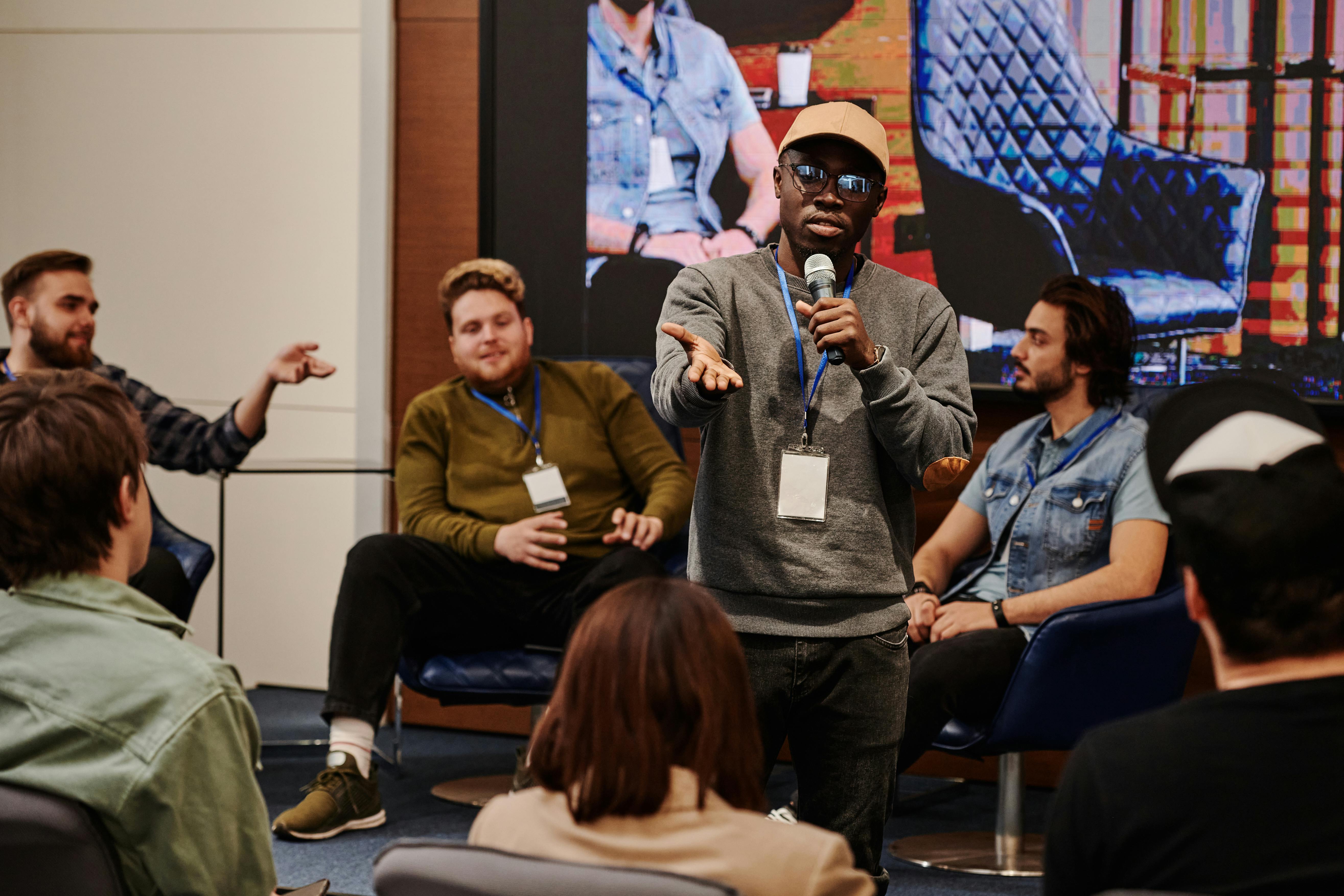How to Join NDIS Social Groups Easily
Navigating the world of social programs can be daunting. Especially when you're trying to find the right fit for someone with a disability.
The National Disability Insurance Scheme (NDIS) in Australia offers a solution. It provides support for individuals with disabilities, including access to social groups.
NDIS social groups are more than just a gathering. They are a platform for social inclusion, skill development, and community participation.
But how does one join these groups? And how can you maximize the support provided by the NDIS for these social programs?
This guide will walk you through the process. It will help you understand the benefits, eligibility, and steps to join NDIS social groups easily.
Whether you're an NDIS participant, a caregiver, or a healthcare professional, this guide will provide valuable insights. Let's dive in.

Understanding NDIS and Social Groups
The National Disability Insurance Scheme (NDIS) is vital for many Australians. It provides funding to support individuals with disabilities, promoting independence and skill development.
Social groups are a key component under the NDIS. They foster connections among participants, offering opportunities for community involvement. These groups help break isolation, promoting interaction and friendship.
Participating in NDIS social groups offers several advantages:
Encourages community engagement and inclusion
Provides opportunities for skill development
Enhances mental health and well-being
Understanding how NDIS social groups function is essential. These groups are designed to align with individual needs and goals, offering tailored support. Engaging with these groups can significantly enhance the quality of life for participants.
The Importance of Social Inclusion for NDIS Participants
Social inclusion is more than just a social gathering. It significantly impacts NDIS participants' mental and emotional health. By being part of a community, individuals feel valued and supported.
Being part of social groups fosters a sense of belonging. This helps reduce feelings of loneliness and isolation that many individuals with disabilities face. It also enhances self-worth and confidence.
Social inclusion encourages learning and growth. Participants are exposed to diverse perspectives and experiences, leading to personal development. This growth contributes to better independence over time.
Additionally, social inclusion through NDIS social groups offers participants more opportunities to engage in meaningful activities. Such interactions can pave the way for new skills and even friendships.
Benefits of Joining NDIS Social Groups
Joining NDIS social groups brings numerous advantages. One key benefit is enhanced social skills. Members interact regularly, practicing communication and interpersonal abilities.
Another significant advantage is improved mental health. Participating in social activities can reduce stress and anxiety. This is due to engaging with peers in a supportive environment.
Moreover, joining social groups fosters community engagement. Individuals become active members of their communities, leading to a sense of purpose and belonging.
Lastly, participating in these groups can spark new interests and hobbies. This exploration contributes to personal growth and development, enriching participants' lives immensely.
Eligibility and How to Use Your NDIS Plan for Social Groups
To join NDIS social groups, eligibility is essential. You must be an NDIS participant. This ensures that you can access and benefit from the support offered.
Each NDIS plan is unique. Understanding your plan helps in using it effectively for social participation. You need to check which supports and funding are available.
Accessing social groups through your NDIS plan involves a few steps. First, identify activities covered in your plan. These activities should align with your goals and needs.
Here's a quick checklist for utilizing your NDIS plan:
Review your current NDIS plan details.
Confirm funding for social participation.
Discuss interests with your support coordinator.
Seek approval for necessary funding adjustments, if needed.
Understanding these elements will help you participate confidently in NDIS social programs. This aids in ensuring that your participation aligns with your personal goals.
Step-by-Step Guide to Joining NDIS Social Groups
Joining NDIS social groups can be simple with a step-by-step approach. Understanding each phase will aid you in navigating the process smoothly.
First, begin by identifying your unique interests and hobbies. Knowing what you enjoy will guide you toward suitable groups.
Next, find local NDIS social groups that match your interests. This can be done through online searches or community centers.
Contacting group providers is an important step. Attend any available information sessions to learn more about the group and its members.
Once you've chosen a group, understand the registration and membership requirements. These may involve paperwork or certain eligibility criteria.
Here is a quick step-by-step list to guide you:
Identify your interests.
Find local groups.
Contact providers.
Attend sessions.
Complete registration.
Completing these steps will ensure you are well-prepared to join an NDIS social group that fits your needs and goals.
Identifying Your Interests
Identifying your interests is the first critical step. Think about activities that bring you joy and satisfaction. You might enjoy sports, arts, or learning new skills.
Consider social settings that make you comfortable. Some people prefer small groups, while others thrive in larger gatherings. Knowing your preferences will help you choose the right social program.
Finding Local NDIS Social Groups
Finding local NDIS social groups can be easy with the right tools. Start by visiting the NDIS website for listings in your area. You can also check with your local council or community centers for more options.
Engage with online forums or social media communities related to NDIS. These platforms often share valuable insights and updated information on available groups nearby.
Contacting Providers and Attending Information Sessions
Once you’ve identified potential groups, reach out to the providers. Communication is key; inquire about the group's activities and dynamics.
Attend any available information sessions. These events provide a firsthand look at the group's environment. They can also give you a feel for the community and its culture.
Registration and Membership Requirements
After choosing a group, it's time to handle registration. Providers will guide you through the process, which might involve paperwork or interviews.
Ensure you meet all membership requirements. This might include age restrictions, specific interests, or scheduling commitments. Understanding these requirements will help you integrate smoothly into the group.
Types of Social Groups and Activities
NDIS social groups vary widely to cater to diverse interests and needs. They provide an opportunity for social participation and engagement.
Many groups focus on recreational activities. These might include sports, arts and crafts, or music. Such activities promote fun and creativity among participants.
Other groups may prioritize learning and skill development. Workshops or classes in technology or cooking are common. They aim to enhance personal growth and independence.
Social groups also offer opportunities for community involvement. Volunteering and environmental projects often feature in group activities.
Here's a glimpse at some types of NDIS social groups:
Recreational activities (sports, arts)
Skill development workshops
Community engagement projects
Support and discussion groups
With a range of options available, there's a group for every NDIS participant, ensuring everyone finds a place where they can flourish and connect with others.
The Role of Support Coordinators and Community Organizations
Support coordinators play a crucial role in connecting NDIS participants with suitable social groups. They help navigate the complexity of NDIS support and understand participants' specific needs and goals.
Community organizations complement the work of support coordinators. They often host social programs and offer a welcoming environment for diverse activities. This collaborative approach ensures participants have ample opportunities for engagement and inclusion.
Overcoming Barriers and Ensuring Accessibility
Joining NDIS social groups can present challenges, but many resources exist to help. Identifying specific barriers, like transportation or communication needs, is essential.
Ensure accessibility by seeking groups that accommodate diverse needs. Many providers offer tailored solutions to support different abilities, enhancing participation for everyone involved.
Success Stories: The Impact of Social Groups on Participants
NDIS social groups have transformed many lives. Participants often report increased confidence and a renewed sense of belonging. These positive changes lead to stronger community connections and improved social skills.
Personal testimonials highlight the development of lasting friendships and support networks. These relationships enhance both personal and emotional well-being, underscoring the value of these programs.
Conclusion and Additional Resources
Joining NDIS social groups can significantly enrich your life. Engaging with these programs fosters both connection and personal growth. These groups provide not only support but also opportunities for new experiences.
For further assistance, explore local community centers or visit the NDIS website. These resources can guide you in finding and joining suitable groups. Stay informed and connected to enjoy the full benefits of social programs.


